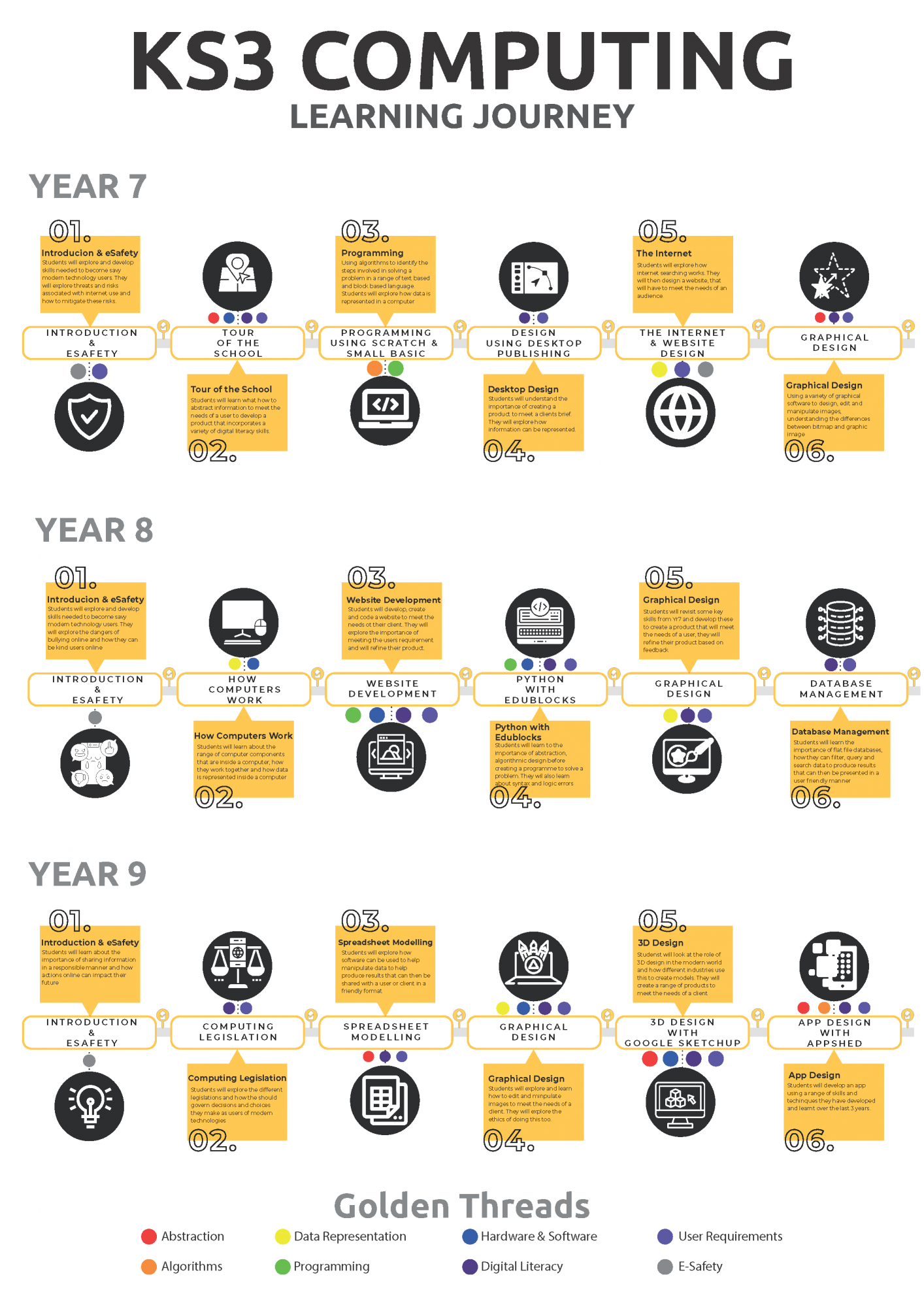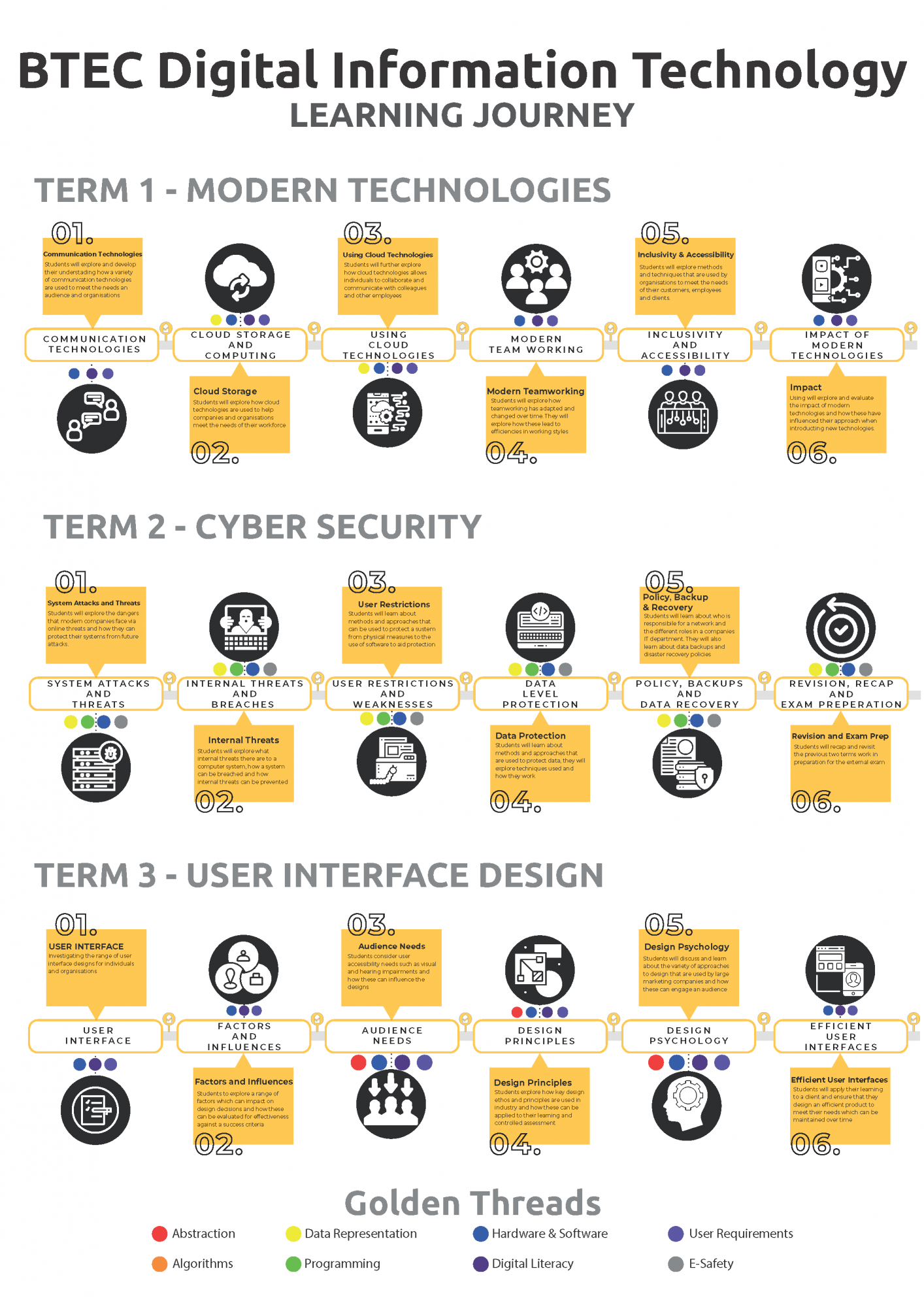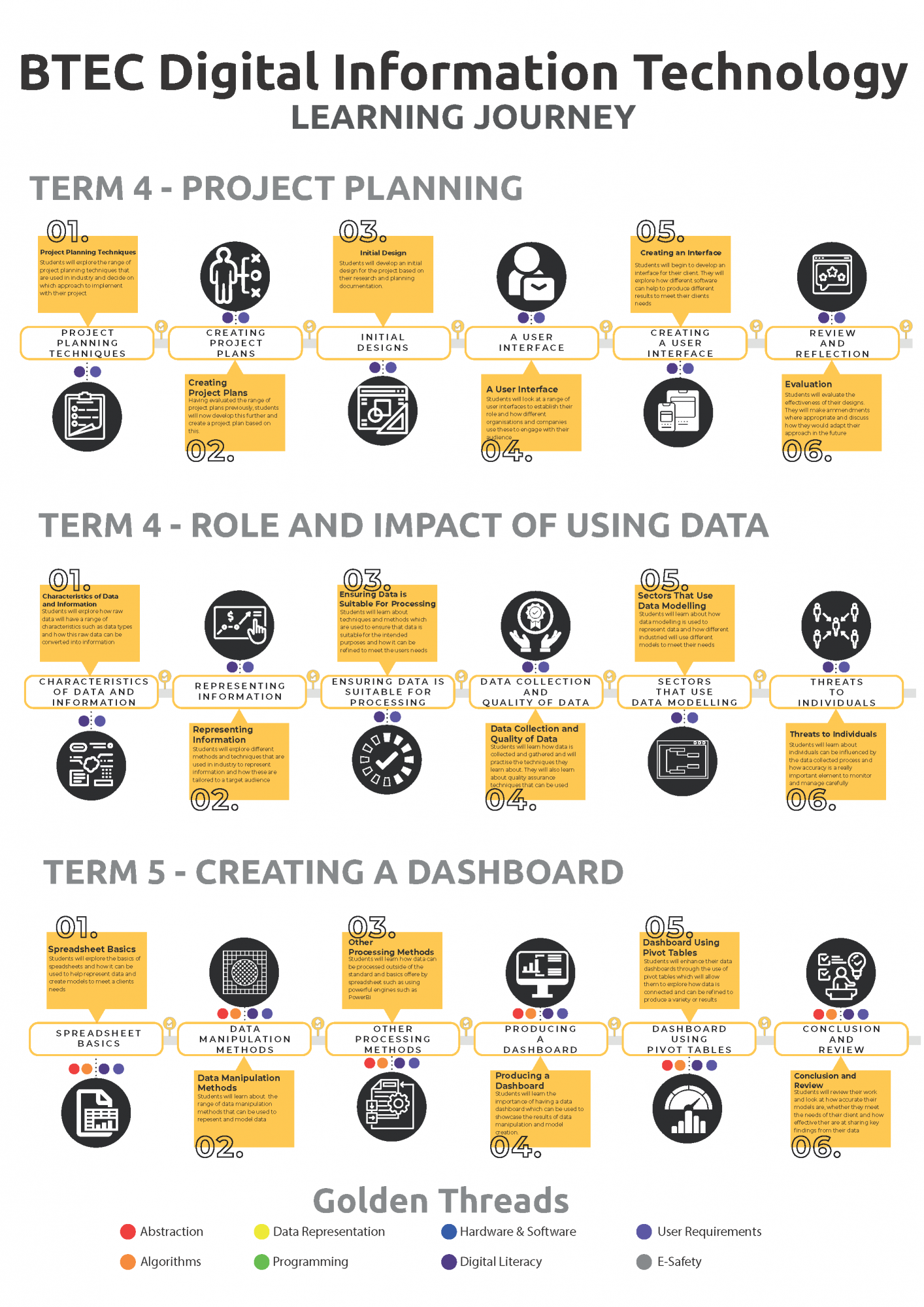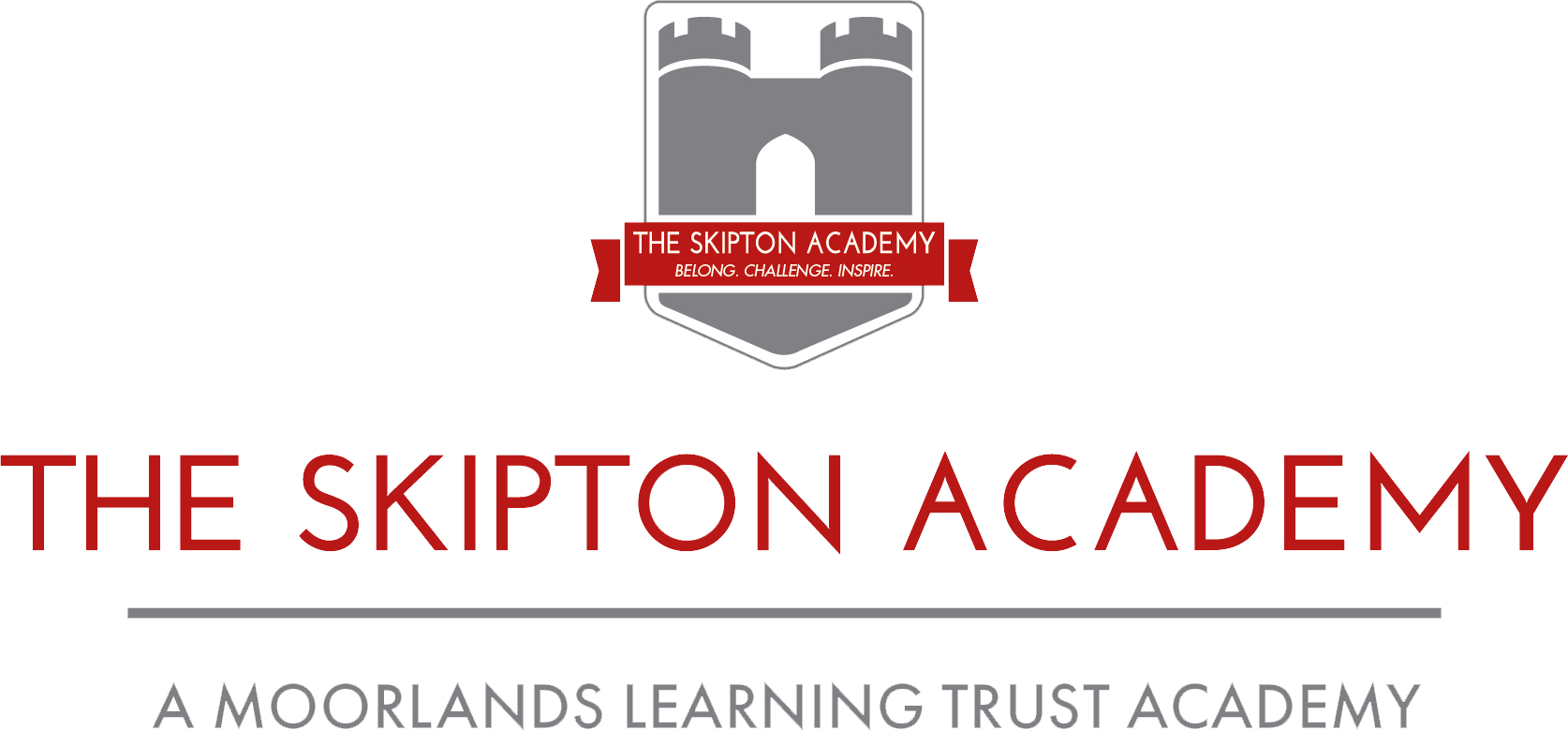Computing & Digital ICT
The computing curriculum is a carefully designed schema of powerful knowledge and skills containing what we consider necessary for our young people to achieve durable and high-quality learning. The Skipton Academy will adhere to the values contained within the National Curriculum for computing.
In ensuring that the curriculum both meets the National Curriculum for computing and our ambitions to develop a schema of powerful knowledge and skills, our curriculum aims to make computing an engaging and exciting subject area. It will allow the pupils to develop confidence and demonstrate increasing levels of independence in their use of technology. The curriculum teaches concepts and ideas that will play a vital role in pupils developing an effective understanding of computing and information technology. It offers learning tasks that provide challenge and ambition for pupils using materials which are set in worthwhile and realistic problems whilst also being inclusive. The curriculum on offer makes certain technology is used in a way which benefits the health and wellbeing of our pupils both on a physical and mental level and it will enrich the young peoples’ cultural capital. We hope that it allows our young people to move on to employment opportunities or further study in this subject area with a high degree of confidence.
Key Stage 3
At Key Stage 3, the young people studying at The Skipton Academy will follow the three core themes enumerated within the National Curriculum: digital literacy, information technology and computing. In doing so, they will acquire a schema of skills and powerful knowledge in the following areas:
- Abstraction
- Algorithms
- Programming
- Binary & Logic
- Hardware & Software
- Data Representation
- Digital Literacy
- User Requirement
- E-Safety
Key Stage 4
During Key Stage 4, pupils at The Skipton Academy will study for certification in BTEC Level 1/Level 2 Tech Award in Digital Information Technology. This course is comprised of two coursework components that are internally assessed and an external synoptic examination. Component 1 covers material that explores user interface design principles and project planning techniques. The second component features tasks regarding the collection, presentation and interpretation of data. The synoptic exercises revolve around the subject matter of effective digital working practices. The powerful knowledge acquired by the students in Key Stage 3 will be directly applicable to their learning in Key Stage 4. Additionally, in the latter stages of the young peoples’ learning journey with the academy, they will be given a further opportunity to engage with the computer science strands separate from the qualification that they have been working towards.















